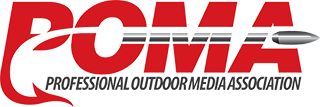WASHINGTON D.C. — Dr. Frank Rohwer, president and chief scientist of Delta Waterfowl, testified today before the U.S. House of Representatives Subcommittee on Water, Wildlife and Fisheries on H.R. 6854, which is known the Habitat Enhancement Now or HEN Act.
If passed, the HEN Act would authorize $3 million annually to enhance duck production in the prairie pothole region through the installation and maintenance of Hen Houses and to develop nesting and brood habitat in California.
 “Waterfowl populations are driven by what happens on the breeding grounds,” Rohwer said during his testimony. “So that’s why I’m excited about this bill. For 40 years, we’ve known that the breeding grounds are declining. We’re losing wetlands. With the intensification of agriculture, we get greater habitat fragmentation and a changed predator community. It’s tough for ducks to survive. The vast majority of eggs laid in the prairie pothole region are eaten by predators. If we want to improve duck populations, we have to work on the breeding grounds and we really need to focus on improving hatch rates.”
“Waterfowl populations are driven by what happens on the breeding grounds,” Rohwer said during his testimony. “So that’s why I’m excited about this bill. For 40 years, we’ve known that the breeding grounds are declining. We’re losing wetlands. With the intensification of agriculture, we get greater habitat fragmentation and a changed predator community. It’s tough for ducks to survive. The vast majority of eggs laid in the prairie pothole region are eaten by predators. If we want to improve duck populations, we have to work on the breeding grounds and we really need to focus on improving hatch rates.”
In 1991, Delta Waterfowl began installing Hen Houses, which are cylindrical nest structures made of rolled wire stuffed with flax grass and mounted on a pole over the water in semi-permanent wetlands. Decades of research and use have proven that Hen Houses nesting structures cost-effectively increase mallard nest success by keeping the hen and her clutch of eggs out of reach of mammalian nest predators.
“They really work for two reasons,” Rohwer told the subcommittee. “Mallards love them, and they jump in these things and lay eggs. And the second really impressive thing is that the eggs actually hatch. We typically see a 10-fold increase when mallards nest in Hen Houses.”
The HEN Act was introduced in December by sponsors Reps. Michelle Fischbach, R-Minnesota, Mike Thompson, D-California, and Douglas LaMalfa, R-California. Rep. Lauren Boebert, R-Colorado, also has signed on as a sponsor.
“Waterfowl populations have declined,” Fischbach said during the hearing. “This is a huge concern for people across the country, including in my district in Minnesota, where migratory birds are an important part of our ecosystem, and where waterfowl hunting is a part of tradition and our culture. Conservation groups like Delta Waterfowl have been working to restore this habitat. They’ve been installing Hen Houses across the country, which has been found to be the most cost-effective way to increase mallard production. I want to build on their work by incentivizing voluntary stakeholders to play a role in revitalizing these populations. That’s why I introduced the HEN Act.”
The HEN Act would authorize $1.5 million for Hen Houses and $1.5 million for California habitat enhancement annually for five years. The resulting duck production programs would add tens of thousands of ducks to every fall flight.
Breeding duck populations in California face ever-increasing pressure from development and wetland habitat loss. As a result, targeted efforts to increase duck production are a high priority to enhance duck production for waterfowlers in California and throughout the Pacific Flyway.
 “Seventy percent of mallards (in California) are locally produced,” Rohwer testified. “They’re having a tough time. Populations have really declined in California. We know that the limiting factor in California is brood water. This bill focuses on an incentive program for private landowners is really valuable. The California Waterfowl Association and California Rice have shown that landowners are willing to adopt these programs that improve brood water. If you don’t have water in June and July, ducklings just can’t survive.”
“Seventy percent of mallards (in California) are locally produced,” Rohwer testified. “They’re having a tough time. Populations have really declined in California. We know that the limiting factor in California is brood water. This bill focuses on an incentive program for private landowners is really valuable. The California Waterfowl Association and California Rice have shown that landowners are willing to adopt these programs that improve brood water. If you don’t have water in June and July, ducklings just can’t survive.”
Recognizing the importance of the bill for migratory birds and hunters, 13 members of the American Wildlife Conservation Partnership signed a letter of support that was submitted for the record during the hearing.
The two-hour-long House subcommittee hearing was an important step in the legislative process. From here, the bill could be marked up/amended, voted on by the committee, and then sent to the House floor for a vote.
Delta Waterfowl is The Duck Hunters Organization, a leading conservation group working to produce ducks and secure the future of waterfowl hunting in North America. Visit deltawaterfowl.org.
For more information on Delta’s Hen House Program, contact Matt Chouinard, waterfowl programs manager, at mchouinard@deltawaterfowl.org. To request images or video for media use, contact Paul Wait at pwait@deltawaterfowl.org.


